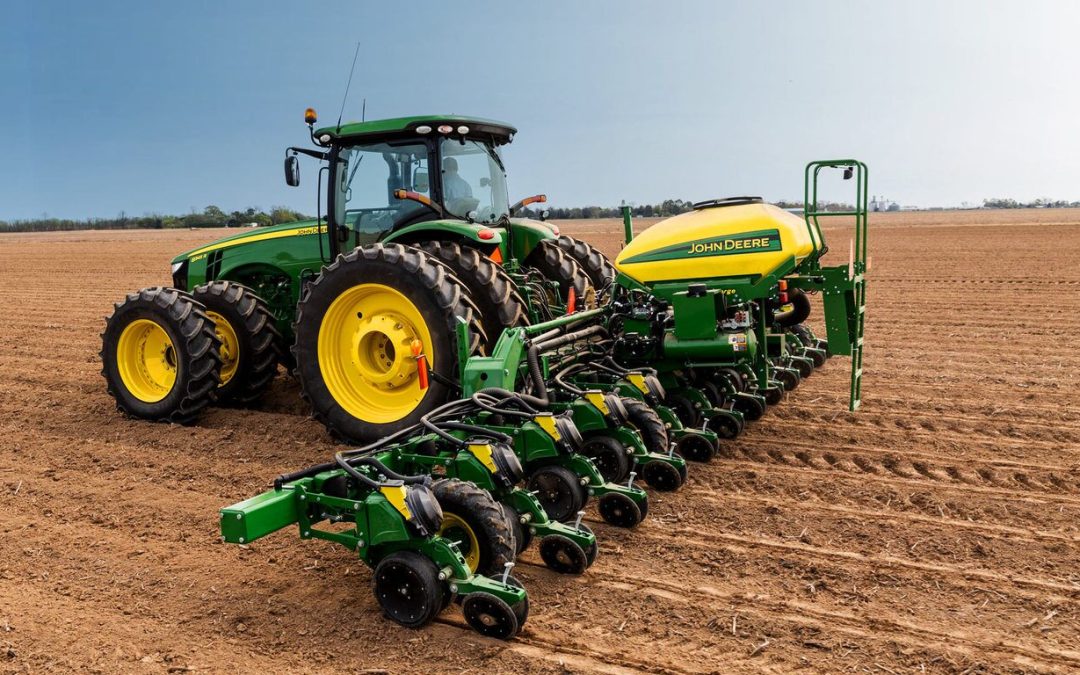Introduction:
Maharashtra, known for its diverse agricultural landscape, is home to farmers who strive for improved crop production and efficiency. Seeders play a crucial role in achieving these goals by ensuring accurate and timely seed placement. In this blog, we will explore the different types of seeders available for farmers in Maharashtra. By understanding the advantages, applications, and suitability of each type, farmers can make informed decisions to enhance their farming practices. So, let's dive in and discover the various seeders that can revolutionize agriculture in Maharashtra!
- Conventional Seeders:
- a) Hand-Held Seeders:
Hand-held seeders have been widely used in Maharashtra for their simplicity and affordability. They are ideal for small-scale farmers who need flexibility and precision in seed sowing. Hand-held seeders allow farmers to manually sow seeds by turning a crank or pressing a trigger, enabling accurate seed placement in tight spaces or uneven terrain.
- b) Broadcast Seeders:
Broadcast seeders are suitable for Maharashtra's large-scale farming operations, where wide-area coverage is essential. These seeders disperse seeds uniformly over a field using rotating discs or air pressure. They save time and labor by quickly sowing seeds such as grass, cover crops, or grains across expansive farmlands.
- c) Drop Seeders:
Drop seeders are valuable for Maharashtra's farmers seeking precise seed placement. These seeders rely on gravity, allowing seeds to drop into furrows or holes at specific intervals. Drop seeders enable farmers to control seed spacing and optimize germination rates. They are particularly useful for crops such as vegetables or flowers that require accurate seed placement.
- Mechanical Seeders:
- a) Single Row Seeders:
Single row seeders are commonly used by farmers in Maharashtra for small-scale farming, market gardening, or backyard planting. These mechanical seeders sow seeds in a single row, offering adjustable seed plates or wheels to regulate seed spacing and depth. Single row seeders provide efficiency and convenience, especially for crops with varying seed sizes or spacing requirements.
- b) Multi-Row Seeder:
Multi-row seeders cater to the needs of Maharashtra's large-scale farming operations, where maximizing productivity is essential. These seeders sow multiple rows simultaneously, covering a larger area in less time. Multi-row seeders incorporate advanced technologies for precise seed placement, optimizing plant populations and overall yield.
- c) Pneumatic Seeders:
Pneumatic seeders utilize air pressure to dispense seeds accurately. They are beneficial for Maharashtra's farmers, particularly when handling delicate or irregularly shaped seeds. Pneumatic seeders ensure uniform seed distribution, even at high speeds, reducing seed waste and improving planting efficiency. They are commonly used for crops such as vegetables, flowers, or sugar beets.
- Precision Seeders:
- a) Vacuum Seeders:
Vacuum seeders are highly suitable for Maharashtra's nurseries, greenhouse operations, and sowing small seeds. These seeders use suction to pick up and place individual seeds with high precision. Vacuum seeders ensure uniform seed spacing and reduce seed damage or waste. They are popular for crops like lettuce, carrots, or onions, where accurate seed placement is crucial.
- b) Air-Assisted Seeders:
Air-assisted seeders combine air pressure and seed plates to distribute seeds accurately. These versatile seeders handle a wide range of seed sizes and types, making them suitable for various crops grown in Maharashtra. Air-assisted seeders are efficient for high-speed planting, providing precise seed placement and depth control. They are commonly used for crops like corn, soybeans, or cotton.
- c) Dibbling Seeders:
Dibbling seeders are specifically designed for Maharashtra's horticulture and vegetable production. They create holes or furrows in the soil, allowing farmers to transplant young plants or seedlings at the desired depth. Dibbling seeders ensure accurate spacing and protect delicate young plants during the transplanting process.
Conclusion:
The diverse agricultural landscape of Maharashtra demands a thorough understanding of different types of seeders to maximize efficiency and crop production. By considering the advantages, applications, and suitability of each type, farmers in Maharashtra can select the appropriate seeders for their specific needs. Whether it's small-scale farming or large-scale operations, the right seeder can revolutionize the sowing process and contribute to the sustainable growth of Maharashtra's agriculture.






